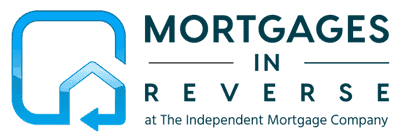Have you ever wondered if your home, your biggest investment, could work harder for you in retirement? You're not alone. Many Vancouver homeowners are exploring the potential of reverse mortgages to enhance their retirement income.
A reverse mortgage allows you to convert some of your home equity into cash, while you continue to live in and own your home. However, it's not as simple as it sounds, and there are some serious considerations to weigh.
Intrigued? It's worth exploring further to see if this financial strategy could be right for your retirement plan.
Key Takeaways
- Reverse mortgages can provide a steady, non-taxable income stream for Vancouver retirees.
- Homeowners retain their property, with loan repayment only due upon sale, permanent move, or death.
- Eligibility for reverse mortgages includes being 55+ and having considerable home equity.
- Consider alternatives and implications on estate planning before opting for a reverse mortgage.
Understanding Reverse Mortgages
To maximize your retirement income in Vancouver, it's crucial to understand how reverse mortgages work, as they can serve as a reliable financial tool for homeowners aged 55 and above. The reverse mortgage process is straightforward, but it's essential to grasp its intricacies to make an informed decision.
In a nutshell, a reverse mortgage allows you to convert a portion of your home equity into cash, which you can use as you please. You retain the ownership of your home and aren't required to make monthly payments. The loan, plus interest, is repaid when you sell your home, move out permanently, or pass away.
Lenders' evaluation plays a vital role in the reverse mortgage process. They assess factors like your property's value, its location, and the current interest rates to determine the amount you can borrow. The higher your home's value and the lower the interest rates, the more money you can access.
Eligibility for a Reverse Mortgage
Before you can tap into the benefits of a reverse mortgage, you'll need to meet certain eligibility requirements. These regulations, designed to safeguard both you and the lender, are strictly enforced.
Firstly, as a potential borrower, you must be at least 55 years old. This age limit is a key part of mortgage regulations, making reverse mortgages particularly relevant for senior borrowers seeking avenues to supplement their retirement income.
Secondly, the property you're placing as collateral must be your primary residence. This means you must live in it for most of the year. Vacation homes or rental properties are typically not eligible.
Thirdly, your home's equity plays a crucial role. The lender will evaluate your home's current market value, your loan balance, and any other related factors. Essentially, a higher equity increases your chances of securing a reverse mortgage.
Lastly, your financial ability is taken into account. You should demonstrate the capacity to maintain your property, cover insurance, and pay property taxes.
In essence, you shouldn't perceive these stipulations as obstacles. Rather, view them as a prudent framework ensuring that reverse mortgages serve their intended purpose – to provide a steady income stream for senior homeowners like you, without the burden of monthly payments.
Financial Benefits of Reverse Mortgages
Undoubtedly, reverse mortgages offer a multitude of financial benefits that can notably enhance your retirement lifestyle. The foremost advantage is the potential for increased cash flow. By converting your home equity into income, you assure yourself a steady stream of funds during your golden years.
Here's a quick overview of some key benefits:
| Benefit | Description |
|---|---|
| Cash Flow | Provides a steady income stream |
| Non-Taxable Income | No tax implications on the loan proceeds |
| Interest Rates | Lower than traditional mortgages |
| Home Ownership | You retain title to your home |
| Flexible Payment | Freedom to choose how you receive your funds |
The interest rates on reverse mortgages are generally lower than those of traditional mortgages, making them an attractive option. Furthermore, the loan proceeds are not subject to tax, which offers a significant advantage in managing your tax implications.
Risks and Concerns
While reverse mortgages can bolster your financial security during retirement, it's crucial to carefully consider the potential risks and concerns associated with this type of loan.
One of the major concerns is potential scams. Unscrupulous lenders or third-party companies may try to take advantage of your situation, offering attractive deals that ultimately lead to financial hardship. Always research any lender you're considering and seek independent advice if you're uncertain.
Another pivotal concern is interest rates. Reverse mortgages often have higher interest rates than traditional mortgages. This can significantly increase the amount you owe over time, as interest compounds on the loan balance. It's important to note that the interest isn't paid out of your pocket, but it does accumulate and is paid off when the loan comes due, usually when you sell your home, move out, or pass away.
Making the Decision: Reverse Mortgage
Navigating the decision to take out a reverse mortgage in Vancouver can be complex, but it's a move that could significantly boost your retirement income if handled with careful consideration and sound financial planning.
To help you make an informed decision, you should weigh the following aspects:
- Understanding Your Needs: Be clear about why you're considering a reverse mortgage. Is it for home improvement, health care costs, or to supplement your retirement income?
- Mortgage Alternatives: Explore other options like home equity loans, lines of credit, or downsizing your home before settling on a reverse mortgage.
- Decision Impacts: Consider the potential effects on your estate, tax obligations, and eligibility for government aid programs.
- Professional Advice: Seek guidance from a financial advisor or a professional with expertise in reverse mortgages.
Frequently Asked Questions
How Does the Local Real Estate Market in Vancouver Affect the Amount One Can Receive From a Reverse Mortgage?
In Vancouver, the local real estate market directly impacts the amount you can get from a reverse mortgage. If property values are high, you're likely to receive more. However, high property values also increase reverse mortgage risks.
If the market dips, you might owe more than your home's worth. So, while Vancouver's thriving real estate market can boost your retirement income, it's crucial to consider potential risks and market volatility.
Can the Income From a Reverse Mortgage Impact My Eligibility for Government Benefits in Retirement?
Yes, the income from a reverse mortgage can impact your eligibility for government benefits in retirement.
It's important to understand that benefit calculations may consider this income. In the application process, you'll need to disclose it. However, each case is different, and the impact varies.
It's best to consult with a financial advisor to understand how a reverse mortgage might affect your specific situation before making any decisions.
What Happens to My Reverse Mortgage if I Decide to Move Out of Vancouver or Sell My Home?
If you decide to relocate or sell your home, it's important to consider the implications on your reverse mortgage. Generally, it becomes due if you move out for a year or more. You'd have to repay it, typically from the sale proceeds.
Also, bear in mind property value considerations. If your home's worth has increased, you'll have more to repay but could potentially profit. It's crucial to plan carefully for these scenarios.
Are There Any Specific Tax Implications for Vancouver Homeowners Who Opt for a Reverse Mortgage?
Navigating tax implications is like solving a complex puzzle. As a Vancouver homeowner considering a reverse mortgage, you're not typically taxed on the loan proceeds.
However, it's important to understand the fine print. While this loan doesn't affect your usual tax deductions, regulations stipulate any interest accumulated isn't deductible until it's actually paid, which usually occurs when you sell the home.
Can a Reverse Mortgage Be Used to Finance Home Renovations or Improvements in Vancouver?
Yes, you can use a reverse mortgage to finance home renovations or improvements. However, consider the financial risks involved. It's crucial to understand reverse mortgage eligibility, as your home is collateral. If you don't meet the terms, you risk foreclosure.
Still, if managed wisely, it can be a viable option to fund renovations that could further increase your home's value, providing a dual benefit. Always seek professional advice before making such a significant decision.

